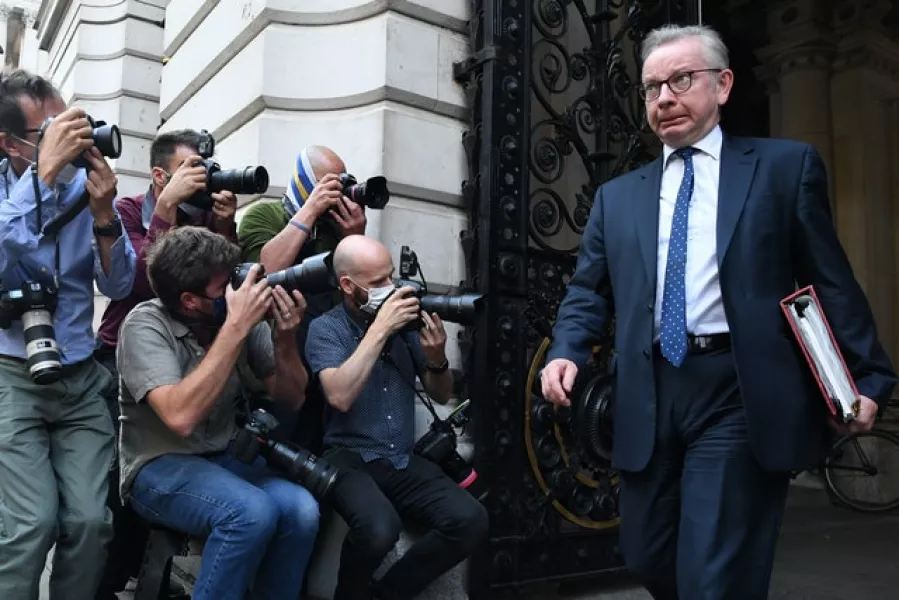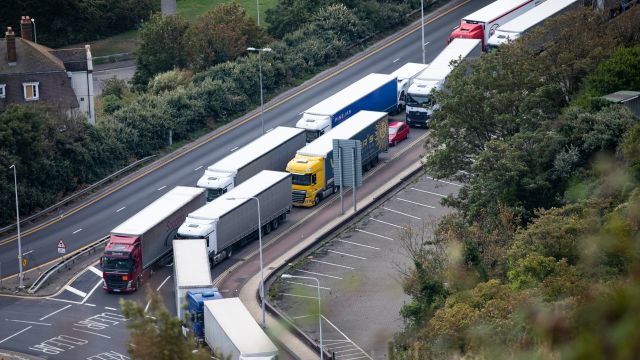The Road Haulage Association (RHA) said their meeting on Thursday with Cabinet Office minister Michael Gove, who is in charge of preparations for the UK exiting the transition period with the European Union without a trade deal, fell “far short of our expectations”.
It comes after Logistics UK, formerly the Freight Transport Association, on Wednesday warned businesses would be dealt a “massive blow” if the Government’s Smart Freight system is not out of testing mode in January when Brussels’ new border regulations come into force for exports from Britain.
Although I don’t think we’re quite back at square one, we’re certainly not much further ahead
A Government source confirmed the customs declaration technology roll-out, designed to reduce the risk of cargo delays once Britain is outside of EU rules, would be at “beta” stage, but said the system would still be “fully operational” in time for 2021.
Richard Burnett, chief executive of the RHA, said there was “no clarity” from Mr Gove on the concerns raised by the freight industry about the impending changes expected when the transition period ends after December 31.
He tweeted: “Today’s meeting with Michael Gove fell far short of our expectations.
“The mutually effective co-operation we wanted to ensure seamless border crossings just didn’t happen and there is still no clarity over the questions that we have raised.”
Today's meeting with @michaelgove fell far short of our expectations. The mutually effective co-operation we wanted to ensure seamless border crossings just didn't happen and there is still no clarity over the questions that we have raised. https://t.co/OinOPcB4tl @RHARichardB pic.twitter.com/I8PUQPsWQr
— RHA News (@RHANews) September 17, 2020
In a statement issued under the heading “Whitehall meeting was a washout”, Mr Burnett added: “With only 75 working days of the transition period left we shall continue to work relentlessly on behalf of our members and the rest of the haulage logistics industry for whom the success of these negotiations have become a matter of make or break.
“Although I don’t think we’re quite back at square one, we’re certainly not much further ahead.”
With the UK-EU trade negotiations at an impasse and further controversy over the Prime Minister’s plans to use domestic legislation to override key elements of the exit deal with Brussels, ministers’ attention has been focused on ensuring trade routes can flow without delays.
According to reports, a coronavirus testing centre in Ebbsfleet, Kent, was closed to make way for a post-Brexit lorry park, in order to be able to carry out customs checks away from the Port of Dover.

The activation of Operation Stack, a controversial Brexit motorway measure to deal with port delays, also led to miles-long queues on the route to the Channel port on Thursday.
The “emergency measure”, which sees junctions along the M20 closed, is designed to prevent gridlock on Kent’s road network.
Operation Stack was used after counter-terrorism police’s call for “enhanced security checks” at UK ports led to traffic delays due to all vehicles and passengers being checked on all short strait routes in Kent.
Pictures showed long lines of HGVs stacked up into the busy port of Dover.







